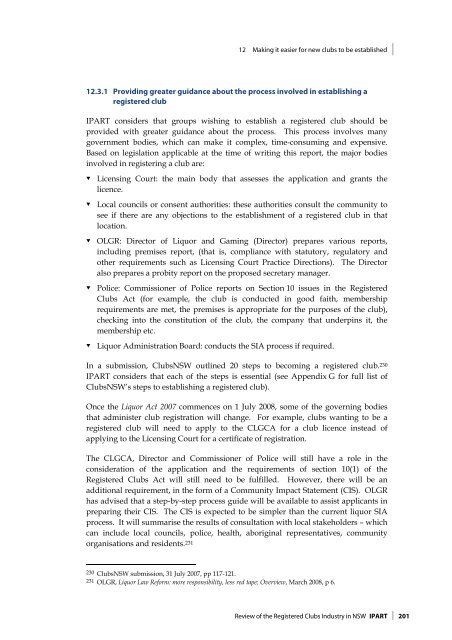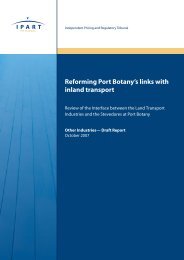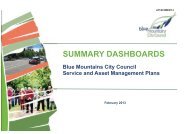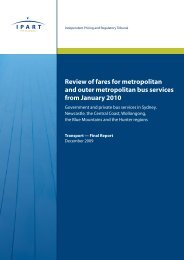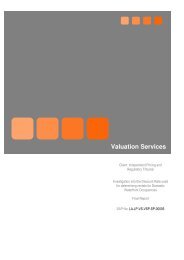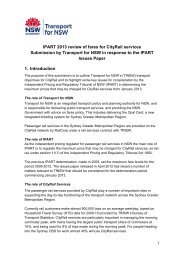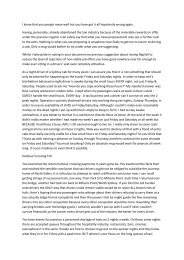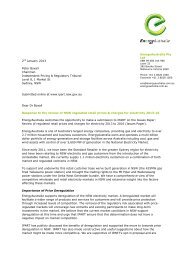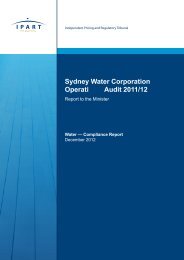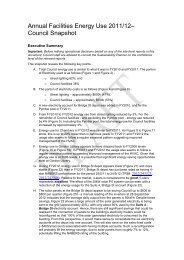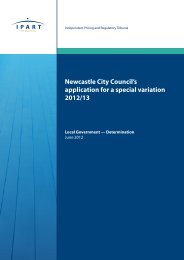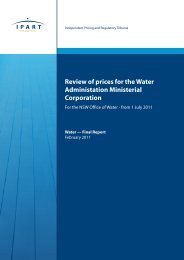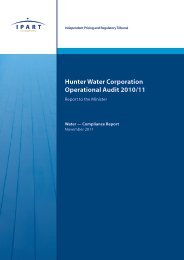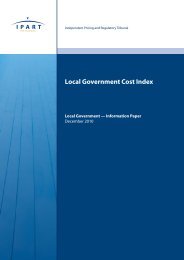Review of the Registered Clubs Industry in NSW - Clubs NSW
Review of the Registered Clubs Industry in NSW - Clubs NSW
Review of the Registered Clubs Industry in NSW - Clubs NSW
You also want an ePaper? Increase the reach of your titles
YUMPU automatically turns print PDFs into web optimized ePapers that Google loves.
12 Mak<strong>in</strong>g it easier for new clubs to be established<br />
12.3.1 Provid<strong>in</strong>g greater guidance about <strong>the</strong> process <strong>in</strong>volved <strong>in</strong> establish<strong>in</strong>g a<br />
registered club<br />
IPART considers that groups wish<strong>in</strong>g to establish a registered club should be<br />
provided with greater guidance about <strong>the</strong> process. This process <strong>in</strong>volves many<br />
government bodies, which can make it complex, time-consum<strong>in</strong>g and expensive.<br />
Based on legislation applicable at <strong>the</strong> time <strong>of</strong> writ<strong>in</strong>g this report, <strong>the</strong> major bodies<br />
<strong>in</strong>volved <strong>in</strong> register<strong>in</strong>g a club are:<br />
<br />
<br />
<br />
<br />
<br />
Licens<strong>in</strong>g Court: <strong>the</strong> ma<strong>in</strong> body that assesses <strong>the</strong> application and grants <strong>the</strong><br />
licence.<br />
Local councils or consent authorities: <strong>the</strong>se authorities consult <strong>the</strong> community to<br />
see if <strong>the</strong>re are any objections to <strong>the</strong> establishment <strong>of</strong> a registered club <strong>in</strong> that<br />
location.<br />
OLGR: Director <strong>of</strong> Liquor and Gam<strong>in</strong>g (Director) prepares various reports,<br />
<strong>in</strong>clud<strong>in</strong>g premises report, (that is, compliance with statutory, regulatory and<br />
o<strong>the</strong>r requirements such as Licens<strong>in</strong>g Court Practice Directions). The Director<br />
also prepares a probity report on <strong>the</strong> proposed secretary manager.<br />
Police: Commissioner <strong>of</strong> Police reports on Section 10 issues <strong>in</strong> <strong>the</strong> <strong>Registered</strong><br />
<strong>Clubs</strong> Act (for example, <strong>the</strong> club is conducted <strong>in</strong> good faith, membership<br />
requirements are met, <strong>the</strong> premises is appropriate for <strong>the</strong> purposes <strong>of</strong> <strong>the</strong> club),<br />
check<strong>in</strong>g <strong>in</strong>to <strong>the</strong> constitution <strong>of</strong> <strong>the</strong> club, <strong>the</strong> company that underp<strong>in</strong>s it, <strong>the</strong><br />
membership etc.<br />
Liquor Adm<strong>in</strong>istration Board: conducts <strong>the</strong> SIA process if required.<br />
In a submission, <strong>Clubs</strong><strong>NSW</strong> outl<strong>in</strong>ed 20 steps to becom<strong>in</strong>g a registered club. 230<br />
IPART considers that each <strong>of</strong> <strong>the</strong> steps is essential (see Appendix G for full list <strong>of</strong><br />
<strong>Clubs</strong><strong>NSW</strong>’s steps to establish<strong>in</strong>g a registered club).<br />
Once <strong>the</strong> Liquor Act 2007 commences on 1 July 2008, some <strong>of</strong> <strong>the</strong> govern<strong>in</strong>g bodies<br />
that adm<strong>in</strong>ister club registration will change. For example, clubs want<strong>in</strong>g to be a<br />
registered club will need to apply to <strong>the</strong> CLGCA for a club licence <strong>in</strong>stead <strong>of</strong><br />
apply<strong>in</strong>g to <strong>the</strong> Licens<strong>in</strong>g Court for a certificate <strong>of</strong> registration.<br />
The CLGCA, Director and Commissioner <strong>of</strong> Police will still have a role <strong>in</strong> <strong>the</strong><br />
consideration <strong>of</strong> <strong>the</strong> application and <strong>the</strong> requirements <strong>of</strong> section 10(1) <strong>of</strong> <strong>the</strong><br />
<strong>Registered</strong> <strong>Clubs</strong> Act will still need to be fulfilled. However, <strong>the</strong>re will be an<br />
additional requirement, <strong>in</strong> <strong>the</strong> form <strong>of</strong> a Community Impact Statement (CIS). OLGR<br />
has advised that a step-by-step process guide will be available to assist applicants <strong>in</strong><br />
prepar<strong>in</strong>g <strong>the</strong>ir CIS. The CIS is expected to be simpler than <strong>the</strong> current liquor SIA<br />
process. It will summarise <strong>the</strong> results <strong>of</strong> consultation with local stakeholders – which<br />
can <strong>in</strong>clude local councils, police, health, aborig<strong>in</strong>al representatives, community<br />
organisations and residents. 231<br />
230 <strong>Clubs</strong><strong>NSW</strong> submission, 31 July 2007, pp 117-121.<br />
231 OLGR, Liquor Law Reform: more responsibility, less red tape; Overview, March 2008, p 6.<br />
<strong>Review</strong> <strong>of</strong> <strong>the</strong> <strong>Registered</strong> <strong>Clubs</strong> <strong>Industry</strong> <strong>in</strong> <strong>NSW</strong> IPART 201


